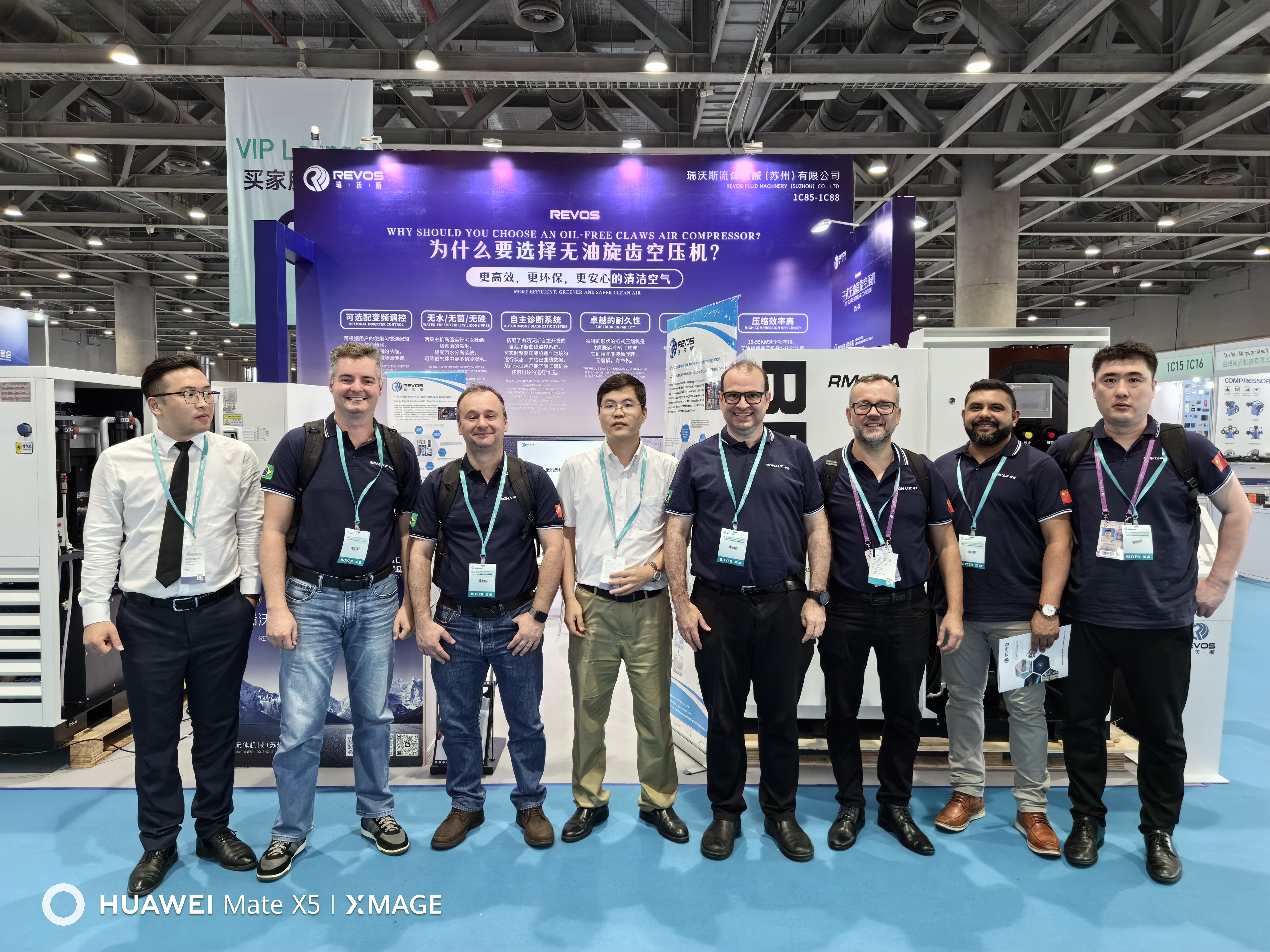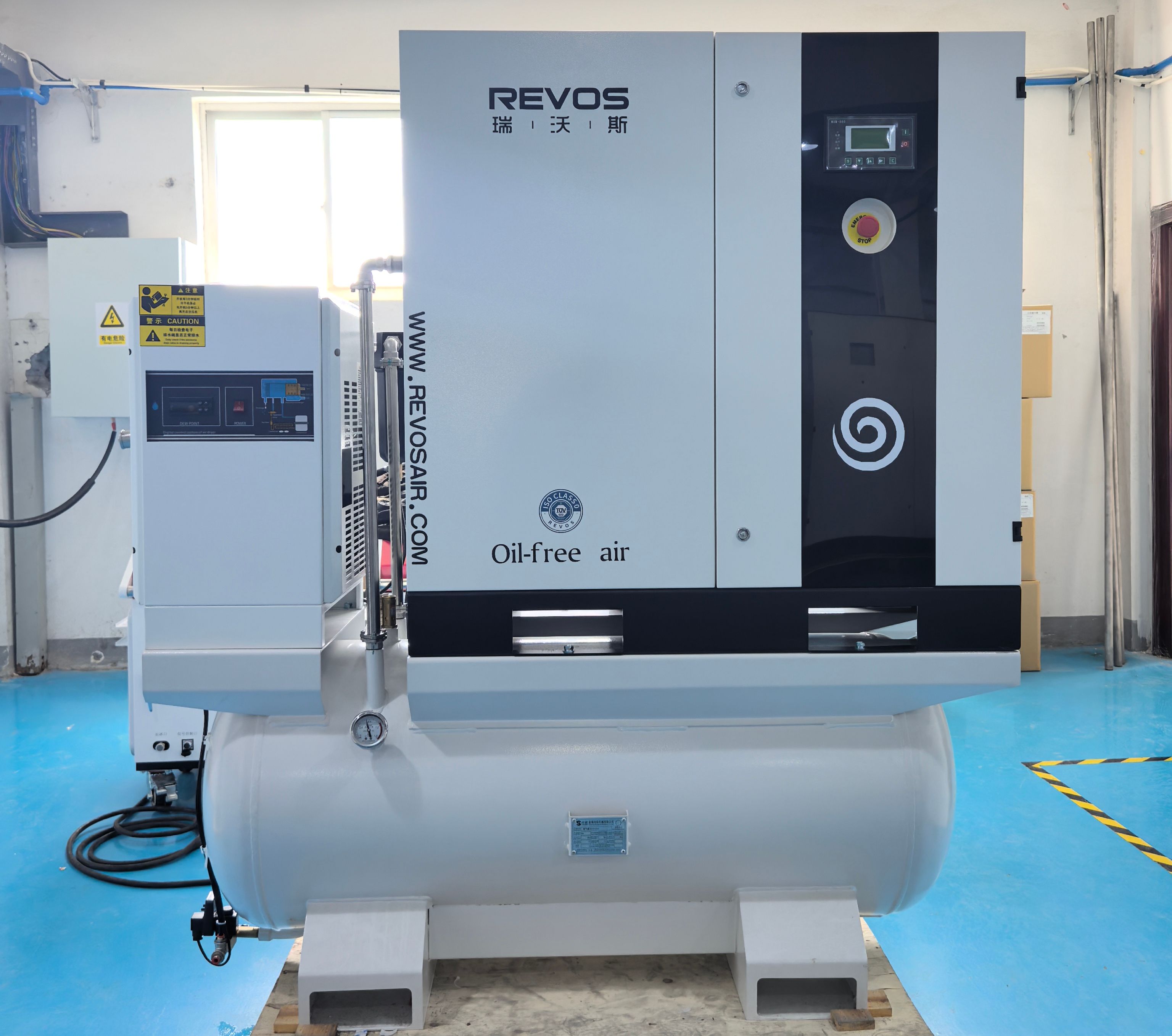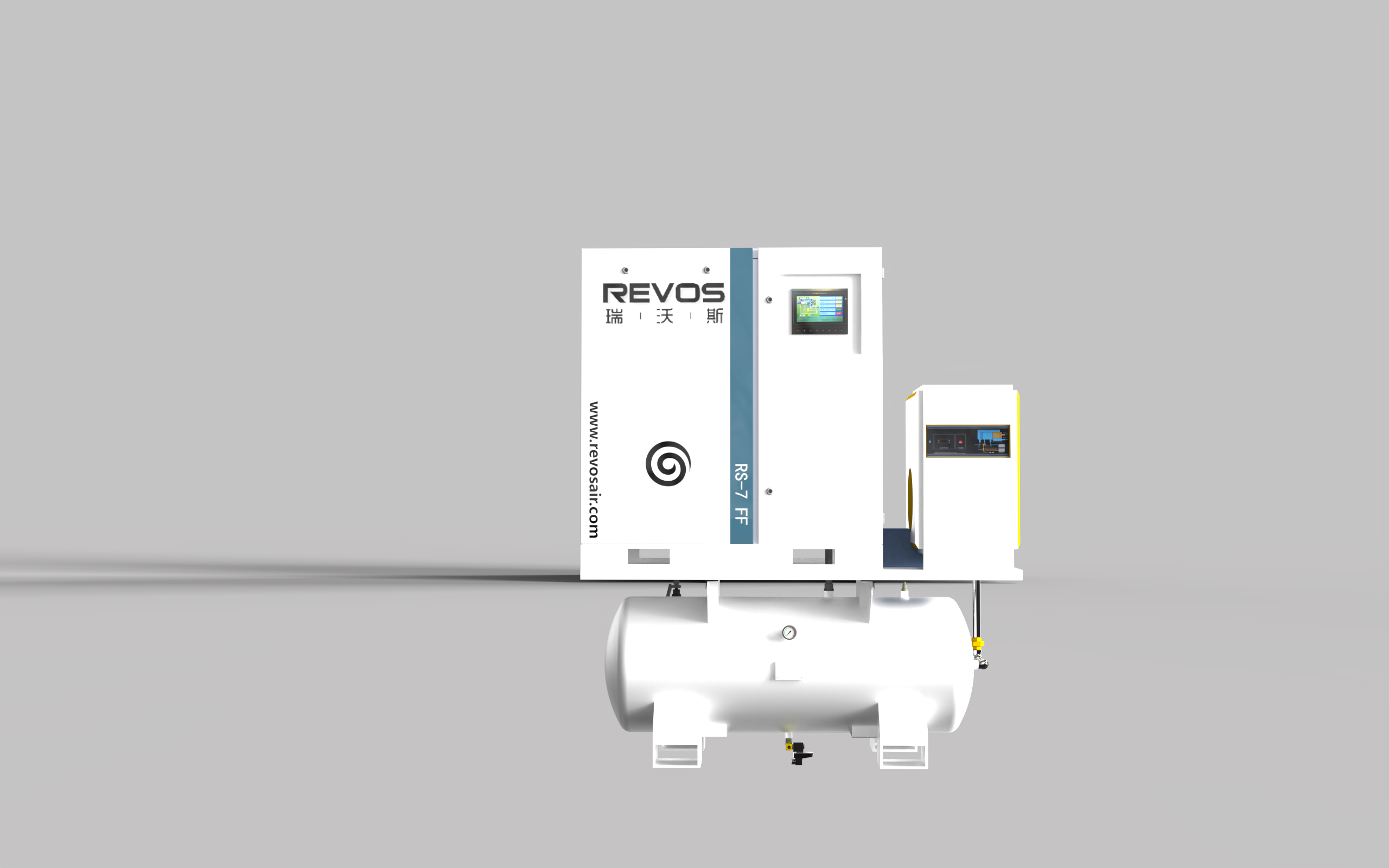In the highly competitive snack manufacturing industry, maintaining product integrity while meeting stringent safety standards is paramount. One leading snack manufacturer recently made a transformative decision to upgrade its production facilities with oil-free screw compressors, resulting in significant improvements in product safety, operational efficiency, and regulatory compliance. This comprehensive case study examines the critical factors driving this transition and the measurable benefits achieved, offering valuable insights for industry professionals considering similar upgrades.
The Evolving Landscape of Snack Manufacturing
The global snack industry faces mounting challenges in balancing product safety with rising consumer demand. Compressed air serves as a vital utility in nearly every stage of snack production—from ingredient handling and mixing to packaging and quality control. Recent market analysis indicates the global market for oil-free air compressors in food applications reached USD 1.92 billion in 2024, reflecting the increasing recognition of their importance in maintaining product integrity across the food and beverage sector.

Food safety regulations have become increasingly rigorous worldwide. Organizations such as the FDA, EU Food Safety Authority, and national regulatory bodies now impose strict standards for compressed air quality. ISO 8573-1:2010 Class 0 certification has emerged as the gold standard for compressed air in food processing, representing the highest level of purity with zero detectable oil contamination. For snack manufacturers, compliance with these standards has evolved from a competitive advantage to a fundamental requirement for market access and consumer trust.
Critical Reason #1: Eliminating Contamination Risks and Ensuring Product Safety
The primary driver behind the snack manufacturer's transition was eliminating persistent oil contamination risks associated with traditional lubricated compressors. In snack production, compressed air directly contacts products during several critical stages: puffing processes for extruded snacks, air-knife cleaning of baked goods, and modified atmosphere packaging (MAP) where air quality directly impacts shelf life and product freshness.
Oil contamination can occur through multiple pathways in traditional compressors: carryover from lubrication systems, degradation of seals and gaskets, and condensation in air lines. Even minute quantities of oil can compromise product safety, create off-flavors, and trigger allergen concerns. A 2025 industry report highlights compressed air contamination as one of the top five causes of unplanned production shutdowns in food processing facilities, often resulting in significant product losses and lasting brand damage.
By implementing oil-free screw compressors certified to ISO 8573-1 Class 0 standards, the manufacturer eliminated this contamination risk entirely. These systems utilize precision-engineered rotors with advanced sealing technologies that require no lubrication in the compression chamber. Similar food grade compressor applications demonstrate this transition resulted in measurable reduction in quality control incidents related to foreign matter contamination, providing both operational peace of mind and enhanced consumer protection.
Critical Reason #2: Meeting Evolving Regulatory Requirements and Simplifying Compliance
Operating in multiple international markets exposed the snack manufacturer to a complex web of regulatory frameworks for food safety. Before transitioning to oil-free technology, the company faced escalating compliance challenges:
- Stringent requirements under the U.S. Food Safety Modernization Act (FSMA) regarding preventive controls for food contact surfaces
- EU Regulation (EC) No 178/2002 requiring comprehensive hazard analysis throughout production processes
- Global Food Safety Initiative (GFSI) certification requirements for compressed air quality monitoring
- Customer-specific quality standards from major retail partners
Maintaining compliance with these regulations using traditional lubricated compressors necessitated extensive filtration systems, frequent air quality testing, and meticulous documentation of contamination prevention measures. This approach increased operational costs and created potential compliance gaps during filter changeouts or system maintenance.
Oil-free screw compressors provided a transformative solution by delivering inherently clean air that meets or exceeds the strictest regulatory requirements. The manufacturer selected compressors with German TÜV Class 0 certification—the highest international standard for oil-free air purity. This certification simplified compliance efforts across multiple jurisdictions and reduced documentation burden during regulatory audits, serving as an excellent food industry air compressor case study.
Industry best practices show the transition to oil-free technology also facilitated compliance with Hazard Analysis and Critical Control Points (HACCP) programs by eliminating a potential critical control point related to compressed air quality monitoring and filtration maintenance.
Critical Reason #3: Achieving Long-Term Operational Efficiency and Cost Savings
While the initial investment in oil-free screw compressors represented significant capital expenditure, the manufacturer recognized substantial potential for long-term cost savings and operational benefits:
Energy Efficiency Improvements
Modern oil-free screw compressors incorporate advanced design features that enhance energy efficiency: optimized rotor profiles, integrated variable speed drives, and efficient cooling systems. Industry data indicates these compressors can achieve 15-25% energy savings compared to older lubricated models. For a mid-sized snack manufacturing facility operating 24/7, this translates to annual energy savings in the six-figure range.
Reduced Maintenance Requirements
Traditional lubricated compressors require regular oil changes, filter replacements, and oil analysis. Transition to oil-free technology eliminated these maintenance tasks, reducing both labor costs and downtime. Maintenance records from similar food industry transitions show oil-free screw compressors typically require 30-40% less maintenance time than lubricated alternatives.
Extended Equipment Lifespan

Oil-free compressors designed for food industry applications feature corrosion-resistant materials and sanitary design elements that extend equipment lifespan in challenging production environments. The manufacturer's analysis projected a 20-25% increase in service life compared to their previous compressed air systems, further enhancing return on investment.
Total Cost of Ownership Analysis
A comprehensive total cost of ownership (TCO) analysis revealed compelling financial justification for the transition:
- Initial capital investment: Higher than traditional compressors
- Annual energy savings: 18-22% reduction in compressed air energy costs
- Maintenance cost reduction: Approximately 35% lower annual maintenance expenses
- Labor savings: Reduced quality control interventions and compliance documentation
- Risk mitigation: Elimination of contamination-related product losses and recalls
Based on these factors, the projected payback period was 22 months, with a projected 10-year net present value exceeding $750,000 for a single production facility.
Implementation Strategy and Operational Outcomes
The manufacturer approached the transition with a systematic implementation strategy designed to minimize production disruption while maximizing operational benefits:
Phased Rollout Approach
The transition was implemented in three phases across production facilities:
- Initial pilot installation in a single production line to validate performance
- Expansion to critical production areas with highest contamination risk
- Full facility conversion with centralized monitoring system integration
This phased approach allowed the manufacturer to address unexpected challenges while accumulating operational data to optimize subsequent installations.
Process Integration and Staff Training
Key to successful implementation was comprehensive staff training and process integration:
- Technical training for maintenance personnel on new system requirements
- Operator training on monitoring and troubleshooting procedures
- Quality control team education on contamination prevention benefits
- Cross-functional team development for ongoing performance optimization
Measurable Outcomes
Six months after full implementation, the manufacturer documented significant operational improvements:
- 21% reduction in compressed air system energy consumption
- 42% decrease in quality control incidents related to foreign contamination
- 37% reduction in maintenance hours for compressed air systems
- Elimination of oil filter replacement costs ($45,000 annually)
- Improved regulatory audit performance with zero findings related to compressed air quality
Production managers also reported intangible benefits including improved process stability, reduced product waste, and enhanced employee confidence in production systems.
Considerations for Similar Snack Manufacturing Facilities
Based on this successful transition, several key considerations emerge for other snack manufacturers evaluating oil-free screw compressors:

Application-Specific Requirements Analysis
Conduct a thorough analysis of compressed air usage points to determine specific requirements:
- Identify direct vs. indirect product contact applications
- Document pressure, flow, and air quality requirements for each application
- Map existing compressed air distribution system to identify improvement opportunities
- Calculate current energy consumption to establish baseline metrics
Technology Selection Criteria
When evaluating oil-free compressors for snack production, prioritize these key features:
- ISO 8573-1 Class 0 certification for complete oil-free air quality
- Energy efficiency ratings (look for IE3 or higher motor efficiency)
- Variable speed drive capability to match production demands
- Sanitary design features including corrosion-resistant materials
- Integrated monitoring and diagnostic capabilities
- Service support network with food industry expertise
Implementation Planning
Develop a comprehensive implementation plan addressing:
- Production scheduling to minimize downtime during transition
- Air system design modifications for optimal performance
- Training requirements across maintenance and production teams
- Quality control protocols for validating system performance
- Documentation needs for regulatory compliance
Ongoing Performance Monitoring
Establish a robust monitoring program to:
- Track energy consumption and efficiency gains
- Verify ongoing air quality compliance
- Monitor maintenance requirements and costs
- Document performance trends for continuous improvement
This successful transition demonstrates that oil-free screw compressors represent more than just equipment upgrades—they're strategic investments in food safety, regulatory compliance, and operational efficiency. For snack manufacturers operating in an increasingly competitive and regulated environment, this technology offers compelling benefits that extend far beyond initial capital investment.
The successful implementation by this leading snack manufacturer serves as a model for how sanitary air compressor solutions have become essential technology for modern food processing facilities committed to product safety, quality excellence, and operational efficiency. As regulatory requirements evolve and consumer expectations rise, the strategic value of oil-free compressed air systems will only increase for forward-thinking food manufacturers, much like beverage production air systems have transformed operations in that sector.
